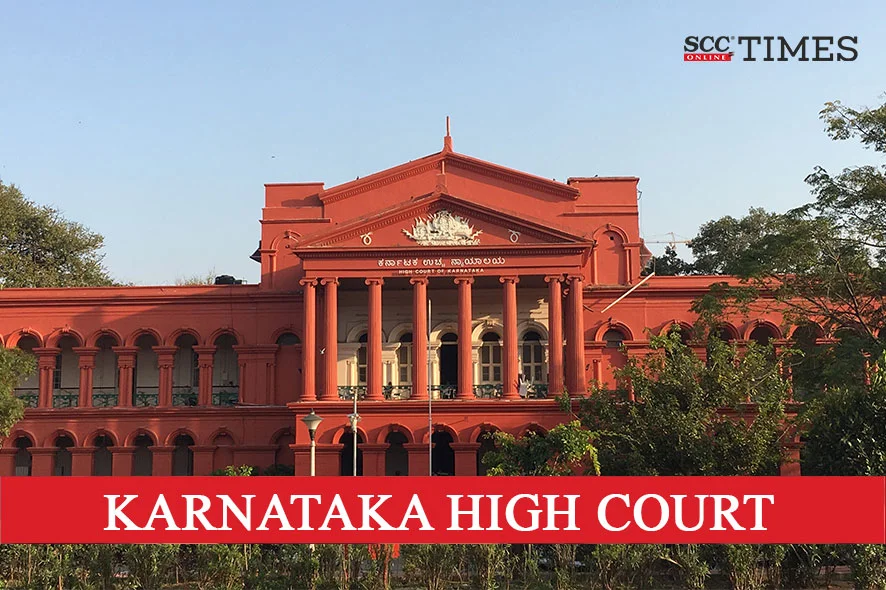Karnataka High Court: While considering the instant petition challenging the non-consideration of the petitioner’s candidature for compassionate appointment, the Division Bench of Krishna S. Dixit* and Vijaykumar A. Patil, JJ., stated that law makers as a matter of policy have framed the definition of ‘family’ to include specific relatives of the employee dying in harness and the daughter-in-law is not one of them. It is therefore not within the domain of Courts to expand or constrict a statutory definition.
The Court further pointed out that who all can lay a claim for compassionate appointment, is a matter of public policy that falls within the domain of the lawmaker, and Courts being the legislature’s coordinate branch, cannot run a race of opinions.
The petitioner’s candidature seeking compassionate appointment was not considered by the Rural Drinking Water and Sanitation Department. As a result, she filed an application before the Service Tribunal; however, the Tribunal via the impugned order dt. 4-1-2024, rejected her application. Hence the instant petition came into existence.
Counsels for the petitioner argued that in order to be saved from the vice of arbitrariness, the definition of ‘family’ given under Rule 2(b)(ii) of the Karnataka Civil Services (Appointment on Compassionate Grounds) (Amendment) Rules, 2021, must be read down and construed to include daughter-in-law of the family, and if this is done, then the petitioner would get employment on compassionate grounds. The petitioner’s counsel relied heavily on Allahabad High Court’s decision in UP Power Corporation Ltd. v. Urmila Devi, 2011 SCC OnLine All 152.
Per contra, the respondents relied on Indira Nehru Gandhi v. Raj Narain, 1975 Supp SCC 1, wherein 5-Judge Constitution Bench of the Supreme Court recognised the doctrine of Separation of Powers as a Basic Structure. It was argued that the 2021 Rules were made by the delegate of the legislature and need to be shown due deference by the co-ordinate organs of the State namely the judiciary. It was stated that the Rule Maker in his wisdom has not included daughter-in-law in the definition of ‘family’ consciously; adding daughter-in-law to the definition would virtually amount to manhandling the law which is impermissible.
Perusing the facts and contentions of the case, the Court broadly agreed with the arguments raised by the respondents.
The Court differed from Allahabad High Court’s decision in UP Power Corporation Ltd. (supra) as it had not adverted to the doctrine of separation powers, which was treated as a basic feature in Indira Nehru Gandhi (supra).
The Court rejected the petitioner’s arguments that the 2021 Rules must be read down in order to include daughter-in-law into the definition of ‘family’. It was stated that doctrine of Reading Down is invoked to trim the contours of law which otherwise suffers from the vice of over-inclusiveness or such other infirmity and therefore is falling foul of a higher legal norm such as the parent statute, the Constitution, etc. “The Courts do not readily resort to this doctrine in the absence of challenge to the legal provision on some constitutional/statutory grounds”.
The Court pointed out that the instant petition does not challenge the definition clause which gives the meaning of family for the purpose of the 2021 Rules. No Rule or Ruling nor opinio juris was cited at the Bar to support the preposition that by the process of reading down, the scope of an instrument of law can be expanded. “Doctrine of reading down may be invoked and applied if the statute is silent, ambiguous or admits more than one interpretation. But where it is express, and clearly mandates to take certain action or to mean certain things, the function of the Court is to interpret it plainly”.
In the absence of challenge, ordinarily Courts do not permit the invocation of doctrine reading down to alter the policy content of a statute.
The Court thus stated that it is under the purview of the lawmaker’s power to frame policy regarding who can lay claim for compassionate appointment. “A greater wisdom lies in confining to the conventional limits of judicial process, leaving the legislative one to the other coordinate branch, than otherwise. More is not necessary to specify”.
[Priyanka Halamani v. State of Karnataka, 2024 SCC OnLine Kar 81, decided on 9-9-2024]
*Order by Justice Krishna S. Dixit
Advocates who appeared in this case :
For petitioner: Shivaraj S. Balloli, Advocate
For respondents: G.K. Hiregoudar, Government Advocate






